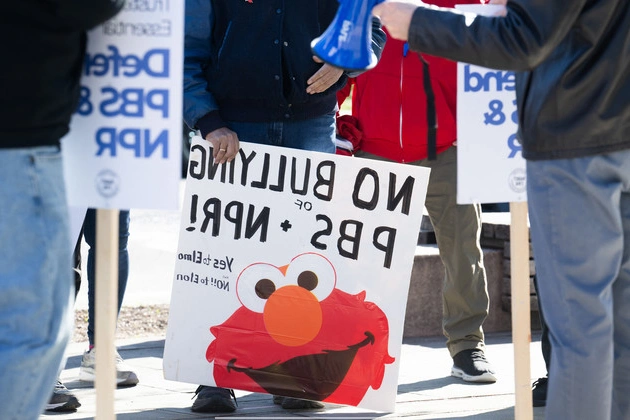
PBS is taking a stand against President Donald Trump and his administration by filing a lawsuit to challenge the order that would strip federal funding from the network. The lawsuit, initiated on Friday, asserts that the President does not have the authority to dictate the content of PBS’s programming or defund the network based on personal disagreements.
Challenging Presidential Authority
President Trump has been vocal in his criticism of media outlets he perceives as adversarial, including NPR and PBS. His recent executive order aimed at curtailing public funds to these organizations, alleging biased news coverage, has sparked a legal battle with PBS. The network argues that the order violates the First Amendment by targeting funding based on the content of its programming, constituting viewpoint discrimination.
Constitutional Concerns
The heart of PBS’s lawsuit lies in the preservation of free speech and editorial independence. By attempting to influence the content of PBS through funding cuts, the administration is accused of infringing on the network’s editorial autonomy. PBS contends that the President’s actions are an overreach of power and a direct assault on the network’s constitutional rights.
In response to PBS’s legal challenge, the White House has defended its position, arguing that the Corporation for Public Broadcasting is using taxpayer money to promote a specific political agenda. Deputy press secretary Harrison Fields reiterated the President’s commitment to fiscal responsibility and justified the funding restrictions as a means to ensure efficient use of public resources.
Broader Implications
Beyond the immediate ramifications for PBS, the lawsuit raises broader questions about government interference in media affairs. With NPR also pursuing legal action against the administration, the battle for media freedom and independence is gaining momentum. The outcome of these lawsuits could set a significant precedent for the relationship between the government and public broadcasting entities.
As PBS and NPR push back against what they perceive as unconstitutional actions by the Trump administration, the importance of a free and diverse media landscape comes to the forefront. Both networks play a vital role in providing informative and educational content to audiences across the country, relying on a mix of public and private funding to sustain their operations.











